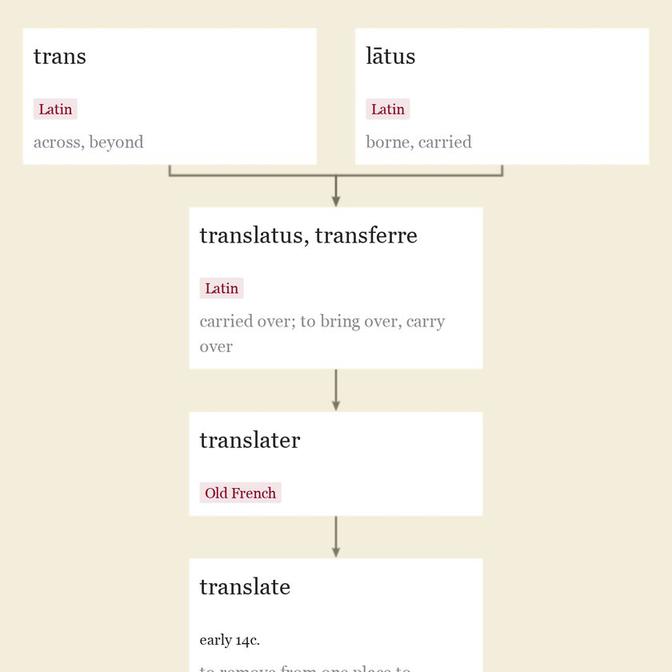intranslatable adj.
1680s, from in- (1) "
Entries linking to intranslatable

word-forming element meaning "
In Old French and Middle English often en-, but most of these forms have not survived in Modern English, and the few that do (enemy, for instance) no longer are felt as negative. The rule of thumb in English has been to use in- with obviously Latin elements, un- with native or nativized ones.

early 14c., "
common termination and word-forming element of English adjectives (typically based on verbs) and generally adding a notion of "
A living element in English, used in new formations from either Latin or native words (readable, bearable) and also with nouns (objectionable, peaceable). Sometimes with an active signification (suitable, capable), sometimes of neutral signification (durable, conformable). It has become very elastic in meaning, as in a reliable witness, a playable foul ball, perishable goods. A 17c. writer has cadaverable "
To take a single example in detail, no-one but a competent philologist can tell whether reasonable comes from the verb or the noun reason, nor whether its original sense was that can be reasoned out, or that can reason, or that can be reasoned with, or that has reason, or that listens to reason, or that is consistent with reason; the ordinary man knows only that it can now mean any of these, & justifiably bases on these & similar facts a generous view of the termination's capabilities; credible meaning for him worthy of credence, why should not reliable & dependable mean worthy of reliance & dependence? [Fowler]
In Latin, -abilis and -ibilis depended on the inflectional vowel of the verb. Hence the variant form -ible in Old French, Spanish, English. In English, -able tends to be used with native (and other non-Latin) words, -ible with words of obvious Latin origin (but there are exceptions). The Latin suffix is not etymologically connected with able, but it long has been popularly associated with it, and this probably has contributed to its vigor as a living suffix.
updated on December 23, 2015